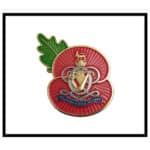Winston Churchill had been in a political wilderness for a decade. When Chamberlain lost a vote of confidence in Parliament following the fall of Norway, Churchill was asked to lead a coalition government.
His first task was to secure the backing of Parliament for his leadership.
“I say to the House as I said to ministers who have joined this government, I have nothing to offer but blood, toil, tears and sweat. We have before us an ordeal of the most grievous kind. We have before us many, many months of struggle and suffering.
Winston Churchill 13th May 1940
You ask, what is our policy? I say it is to wage war by land, sea and air. War with all our might and with all the strength God has given us, and to wage war against a monstrous tyranny never surpassed in the dark and lamentable catalogue of human crime. That is our policy.
You ask, what is our aim ? I can answer in one word. It is victory. Victory at all costs – Victory in spite of all terrors – Victory, how ever long and hard the road may be, for without victory there is no survival.
Let that be realized. No survival for the British Empire, no survival for all that the British Empire has stood for, no survival for the urge, the impulse of the ages, that mankind shall move forward toward his goal.
I take up my task in buoyancy and hope. I feel sure that our cause will not be suffered to fail among men.
I feel entitled at this juncture , at this time, to claim the aid of all and to say, ‘Come then, let us go forward together with our united strength.”
Churchill had been a member of Parliament since 1900, a liberal Conservative who in 1929 found himself at odds with his party’s policies.
For Chamberlain, he served as First Lord of the Admiralty, the political head of the Royal Navy, an office he had first held in 1911. Churchill was a keen military historian but a compromise choice to lead Britain’s wartime government
On the day that Churchill was appointed prime minister, Germany invaded Holland and Belgium and began its assault on France. With that escalation of the war, Churchill had to be sure that he had Parliament’s support.
Therefore, three days later, he asked his fellow MPs to vote on the motion “that this House welcomes the formation of a Government representing the united and inflexible resolve of the nation to prosecute the war with Germany to a victorious conclusion.”
It comes as a surprise to many people that Winston Churchill did not receive a university education. After school, he went straight to a military academy and joined the British army. When he entered politics he felt at a disadvantage to his more qualified peers, more so because he stammered and lisped slightly when he spoke.
He spent many hours crafting his speeches, choosing words and rhythms that would conceal these handicaps, and in the process developing a distinctive style of rhetoric.
Churchill felt that his long experience as a soldier and politician had prepared him for the job at hand.
The same experience helped him to grasp the severity of the situation and the difficulty of the task ahead. “We have before us many, many months of struggle and suffering,” he now warned. He did not offer a detailed action plan – it was too soon for that. “What is our policy? It is to wage war.
What is our aim? It is victory. Victory at all costs, victory in spite of all terrors, for without victory there is no survival. No survival for the British Empire, no survival for all that the British Empire has stood for.” He made the battle Britain’s battle; not France’s or Poland’s or the Low Countries’ battle in which Britain had a mere supporting role.
Of his own abilities, he was falsely modest, but in describing them he was encouraging everyone in his audience in Parliament and across the nation to make what contributions they could to the war effort. “I have nothing to offer but blood, toil, tears and sweat.” Well, everyone could contribute those, and – that being the case he closed with a direct appeal: “I feel entitled at this juncture, at this time, to claim the aid of all and to say, ‘Come then, let us go forward together with our united strength.”
It was, he apologized, a short speech because there was much to do. And in truth, parliamentary approval was a foregone conclusion at such a time of urgency. But Churchill’s carefully chosen words focused on the need for national unity in government and across the country.
The motion was carried unanimously.



